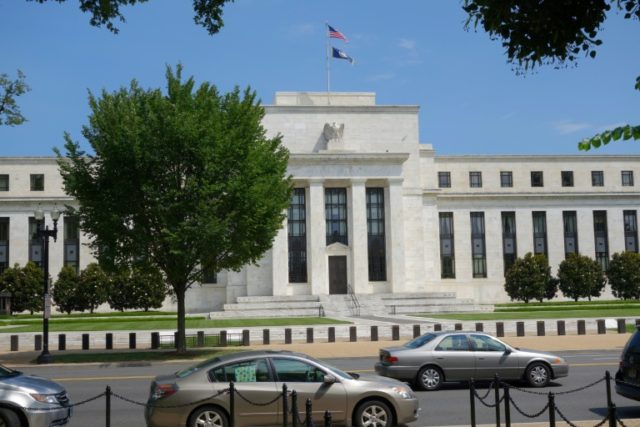Washington (AFP) – The Federal Reserve on Tuesday began a periodic two-day monetary policy meeting with markets eager for clues to how aggressively the central bank plans to raise interest rates this year.
The first rate hike of the year was adopted in March and the Fed is widely expected to hold its fire this time.
But futures markets on Tuesday afternoon gave about a 50 percent chance the Fed would raise rates again in June, September and December — a prospect that has gnawed at investors since February.
Wall Street was sharply lower ahead of the start of the meeting, with the Dow Jones Industrial Average down 1.4 percent shortly after 1700 GMT, under pressure from earnings disappointments and geopolitical and trade worries but also concerns on the Fed’s coming moves.
Recent economic statistics offer increasing reason to believe policymakers may feel compelled to bump up benchmark lending rates this year, perhaps even faster than the three increases so far forecast by the Fed.
A monthly survey of the manufacturing sector released Tuesday showed prices paid at a seven-year high.
The Fed’s preferred inflation gauge, the Personal Consumption Expenditures price index, hit the central bank’s two percent annual target last month for the first time in a year.
Inflation ran ice cold in 2017 despite falling unemployment and steady job creation, baffling economists and the central bank.
But analysts say 2018 is likely to be the year a convergence of factors — a weak dollar, recovering oil prices, synchronous growth among major economies and trade worries — finally combine with the tight labor market to light a fire under price pressures.
Joseph Gagnon, a senior fellow at the Peterson Institute for International Economics, told AFP he expected inflation to exceed Fed targets unambiguously by year’s end.
“I think they’ll do their hikes in March, June and September and when December comes around they will say, ‘we need to hike,’” he said.
“The real risk is that they might have to react to more inflation next year at some point or the year after and they have to cause a recession basically to stop the inflation.”

COMMENTS
Please let us know if you're having issues with commenting.